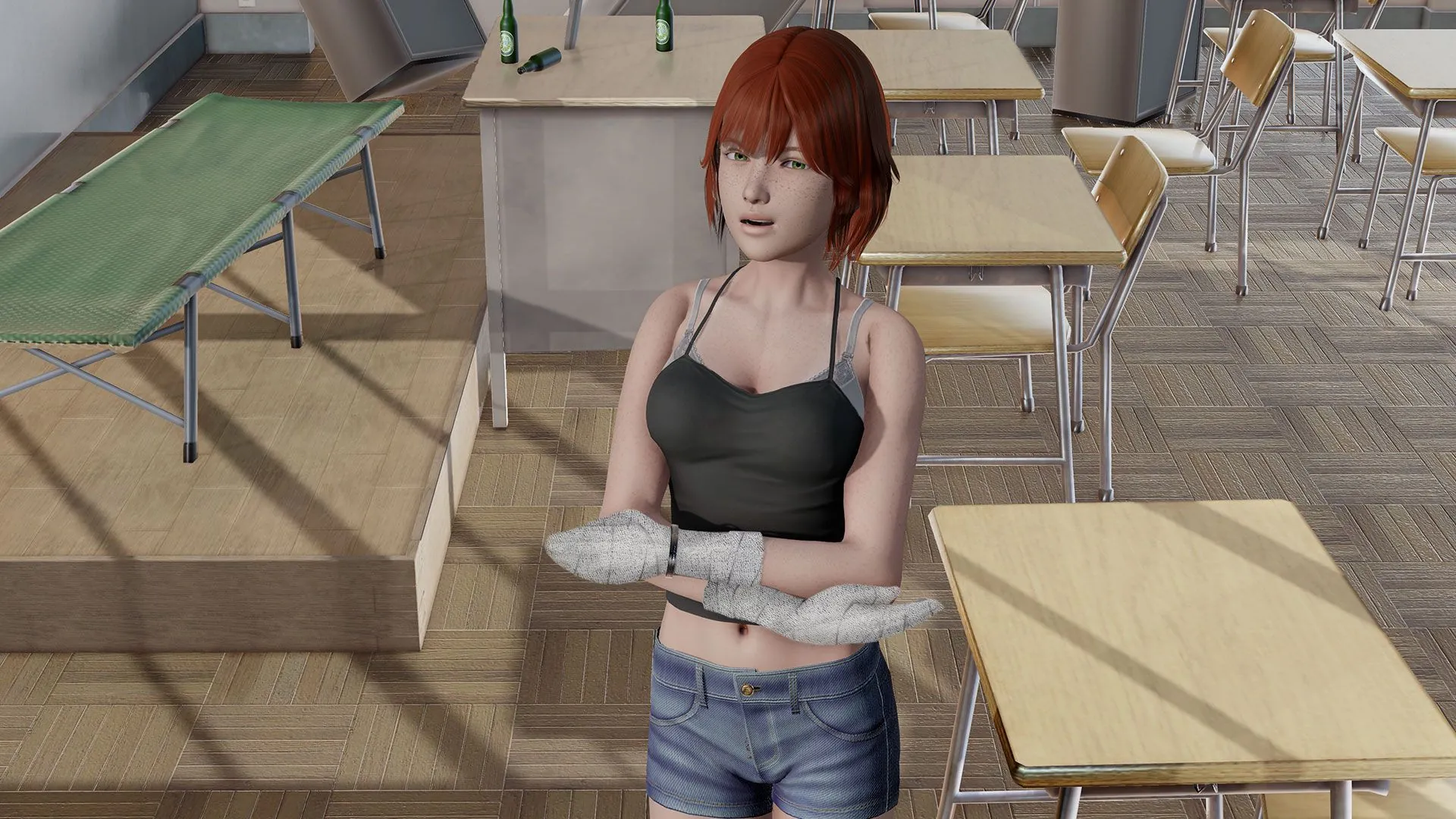
Heart Problems
Play Heart Problems
Heart Problems review
Exploring the narrative, themes, and choices in this unique visual novel
Heart Problems, known in some communities as Katawa Shoujo, is a visual novel that stands out for its sensitive portrayal of characters living with physical challenges. You step into the shoes of Hisao Nakai, a high school student whose life is upended by a sudden cardiac condition. The game doesn’t shy away from exploring the emotional and social complexities faced by its cast, offering players meaningful choices that shape relationships and outcomes. Whether you’re curious about the narrative depth, character development, or how the game approaches mature themes, this guide dives into what makes Heart Problems a memorable experience for many players.
Story and Setting: A Deep Dive into the World of Heart Problems
What is the Heart Problems game about? 🤔
Imagine your entire life plan—school, friends, your future—suddenly shattering in an instant. That’s the reality for Hisao Nakai protagonist, the central figure whose world is turned upside down by a life-altering diagnosis. The Heart Problems game story begins with a seemingly ordinary high school student whose life is irrevocably changed when he is diagnosed with a severe cardiac condition. This isn’t just a plot device; it’s the very engine of the narrative, forcing Hisao to transfer to the specialized Yamaku Academy setting, a school for students with physical challenges. 🏫
I remember starting the game, expecting a typical romance, but what I found was so much more profound. The game immediately pulls you into Hisao’s perspective—the fear, the confusion, and the sense of isolation are palpable. You don’t just watch his story; you feel it. The emotional storytelling in games reaches a peak here, as you guide Hisao through navigating this new environment, making friends, and confronting his own mortality. The premise is a masterclass in using personal crisis to explore universal themes of connection, resilience, and what it truly means to live. This foundational setup is what makes the Heart Problems game story so compelling and unique in the landscape of disability in visual novels.
Key Characters and Their Backgrounds 👥
The soul of any great visual novel lies in its cast, and the Katawa Shoujo characters are some of the most memorable and thoughtfully crafted you’ll ever encounter. Each character’s identity is intrinsically linked to their condition, yet none are defined solely by it. They are fully realized people with dreams, insecurities, and personalities that extend far beyond their physical challenges. Getting to know them is the heart of the experience.
Let’s meet the main cast you’ll be interacting with at Yamaku Academy:
| Name | Condition | Role in the Story |
|---|---|---|
| Hisao Nakai | Arrhythmia (Heart Condition) | The protagonist whose perspective you share. His journey of acceptance and connection forms the core narrative. |
| Shizune Hakamichi | Deafness | The driven and competitive Student Council president. Her route focuses on communication beyond words and the dynamics of leadership. |
| Misha (Shiina Mikado) | None stated (Acts as Shizune’s interpreter) | Shizune’s bubbly and energetic best friend and interpreter. Her presence adds layers of complexity to Shizune’s route. |
| Lilly Satou | Visual Impairment | A graceful and motherly figure. Her story explores themes of independence, reliance, and quiet, deep connection. |
| Hanako Ikezawa | Facial Burns | An intensely shy and reserved girl. Her arc is a delicate dance around trauma, friendship, and overcoming social anxiety. |
| Emi Ibarazaki | Double Leg Amputee (Uses Prosthetics) | A relentlessly optimistic and energetic track runner. Her route deals with confronting past trauma and the dangers of emotional walls. |
| Rin Tezuka | Born without Arms | An enigmatic and abstract-thinking artist. Interacting with her is a journey into understanding a profoundly different perspective on the world. |
What makes these Katawa Shoujo characters so special is their authenticity. 🎭 Emi isn’t just “the girl with no legs”; she’s a fiercely independent bundle of energy who uses humor and running as a coping mechanism. Hanako’s story isn’t just about her scars; it’s a heartbreaking and hopeful look at social phobia and learning to trust. The game spends its time developing their personalities, making their conditions a part of their world, not their entire identity. This nuanced approach is a gold standard for how Heart Problems handles mature themes, treating its subject matter with the respect and depth it deserves.
How the Game Explores Disability and Relationships 💞
This is where Heart Problems truly separates itself from the crowd. The portrayal of disability in visual novels is often clumsy or exploitative, but this game approaches it with a rare blend of honesty, empathy, and nuance. It’s not about “fixing” people or inspiring others; it’s about individuals living their lives, navigating the same universal struggles of love, friendship, and self-discovery, just with a different set of challenges. The Yamaku Academy setting is crucial here—it’s not a sad, sterile hospital, but a vibrant community. It’s a place where students can finally stop being “the disabled kid” and just be “a kid,” which is a powerful narrative device.
The relationships you build are the core of the Heart Problems game story. Your choices as Hisao Nakai protagonist directly shape these bonds, leading to multiple possible endings for each character’s route. The game brilliantly uses its mechanics to reinforce its themes. For instance, pursuing a relationship with the deaf Shizune requires you to actively learn and engage with sign language through the game’s dialogue choices. It’s a simple but powerful way to make the player experience the effort and reward of bridging a communication gap.
The game’s greatest strength is showing that everyone, regardless of ability, is navigating their own personal struggles. Hisao’s heart condition is just as significant to his story as Hanako’s social anxiety or Rin’s struggle to express herself.
The emotional storytelling in games shines brightest in these moments of quiet connection. A simple walk to the tea room with Lilly, a study session with a hesitant Hanako, or a frustrating but profound conversation with Rin—these aren’t grand, dramatic events, but they carry immense emotional weight. The game forces you to be thoughtful. Do you push someone to confront their trauma, or do you give them space? Do you offer help, or do you respect their independence? How Heart Problems handles mature themes is by presenting these dilemmas without easy answers, making your journey through the Heart Problems game story a deeply personal one.
Example of a pivotal story moment influenced by player choice:
Let’s take Emi’s route. After learning about the tragic accident that took her father and her legs, Hisao discovers that Emi fiercely pushes people away to avoid being hurt again. The game presents you with a critical choice: do you respect her boundaries and keep your distance, or do you persistently show up at the track field every morning to run with her, proving your commitment? Choosing to persist, despite her initial brusqueness, is what ultimately breaks down her walls. This single decision, repeated over several in-game days, is the key that unlocks the deeper, more vulnerable side of her character and leads to a resolution where she learns to trust and love again. It’s a perfect example of how player agency drives the emotional storytelling in games, making the resulting connection feel earned and profoundly meaningful. 🏃♂️💨
Heart Problems stands as a thoughtful and emotionally resonant visual novel that challenges players to engage with themes of disability, empathy, and personal growth. Its narrative depth, meaningful choices, and authentic character portrayals have earned it a dedicated following and lasting cultural relevance. Whether you’re drawn to its storytelling, curious about its approach to mature themes, or interested in how it represents physical challenges, Heart Problems offers a unique experience that stays with players long after the credits roll. If you haven’t tried it yet, consider giving it a play—you might just find it changes how you see visual novels, and perhaps even how you see the world.





















